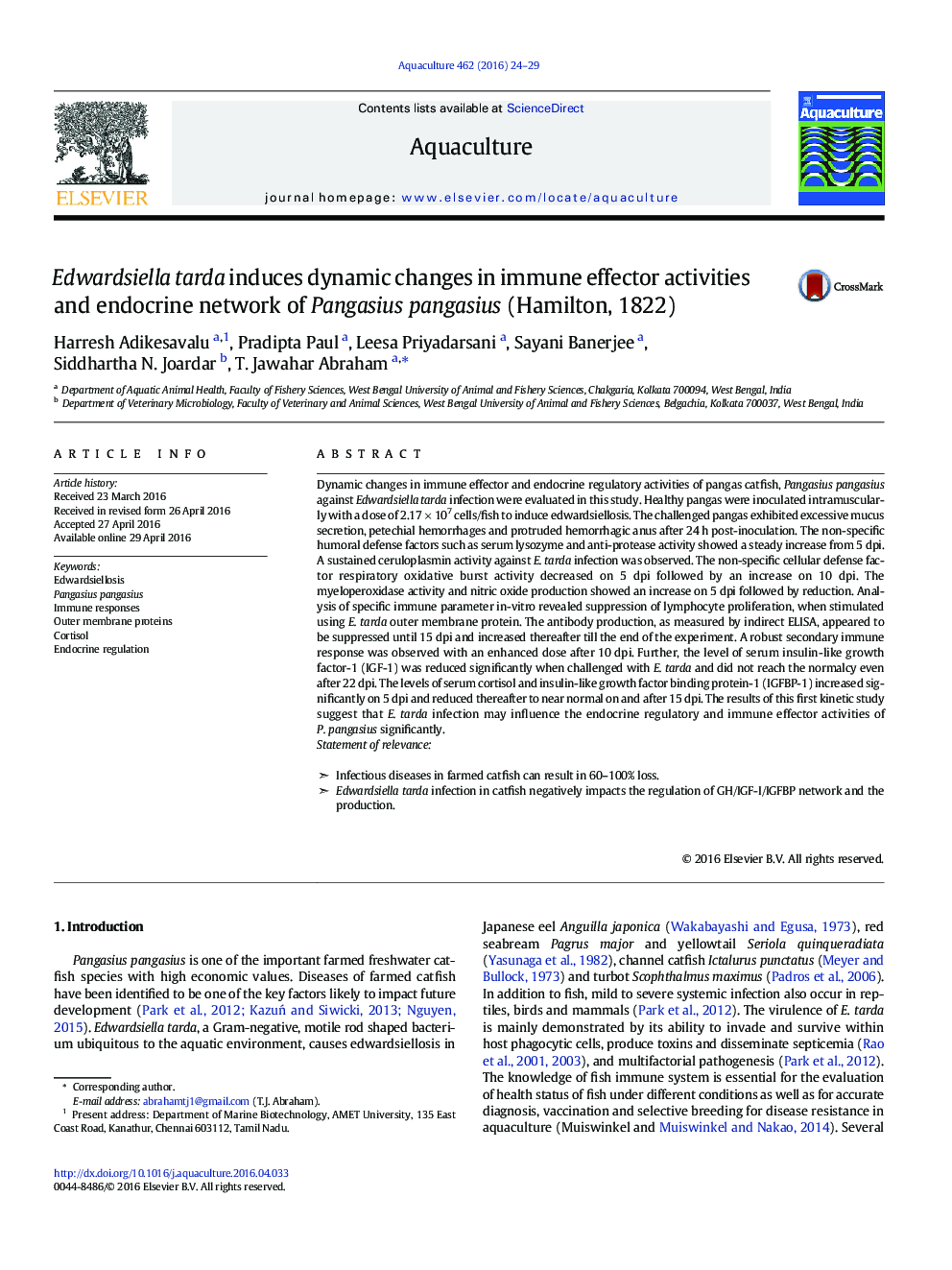| Article ID | Journal | Published Year | Pages | File Type |
|---|---|---|---|---|
| 2421362 | Aquaculture | 2016 | 6 Pages |
•Edwardsiella tarda induced the immune effector and endocrine regulatory activities of Pangasius pangasius.•Non-specific immune responses lasted for only 15 days and antibody production was observed after 15 days of infection.•E. tarda infection had a negative impact on lymphocyte proliferation and GH/IGF-I/IGFBP network.•It is the first report to shed light on the immune and endocrine responses of Pangasius pangasius.
Dynamic changes in immune effector and endocrine regulatory activities of pangas catfish, Pangasius pangasius against Edwardsiella tarda infection were evaluated in this study. Healthy pangas were inoculated intramuscularly with a dose of 2.17 × 107 cells/fish to induce edwardsiellosis. The challenged pangas exhibited excessive mucus secretion, petechial hemorrhages and protruded hemorrhagic anus after 24 h post-inoculation. The non-specific humoral defense factors such as serum lysozyme and anti-protease activity showed a steady increase from 5 dpi. A sustained ceruloplasmin activity against E. tarda infection was observed. The non-specific cellular defense factor respiratory oxidative burst activity decreased on 5 dpi followed by an increase on 10 dpi. The myeloperoxidase activity and nitric oxide production showed an increase on 5 dpi followed by reduction. Analysis of specific immune parameter in-vitro revealed suppression of lymphocyte proliferation, when stimulated using E. tarda outer membrane protein. The antibody production, as measured by indirect ELISA, appeared to be suppressed until 15 dpi and increased thereafter till the end of the experiment. A robust secondary immune response was observed with an enhanced dose after 10 dpi. Further, the level of serum insulin-like growth factor-1 (IGF-1) was reduced significantly when challenged with E. tarda and did not reach the normalcy even after 22 dpi. The levels of serum cortisol and insulin-like growth factor binding protein-1 (IGFBP-1) increased significantly on 5 dpi and reduced thereafter to near normal on and after 15 dpi. The results of this first kinetic study suggest that E. tarda infection may influence the endocrine regulatory and immune effector activities of P. pangasius significantly.Statement of relevance➣Infectious diseases in farmed catfish can result in 60–100% loss.➣Edwardsiella tarda infection in catfish negatively impacts the regulation of GH/IGF-I/IGFBP network and the production.
